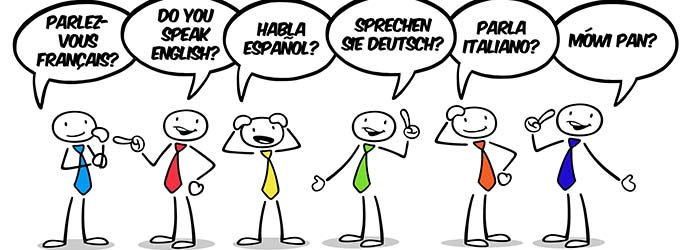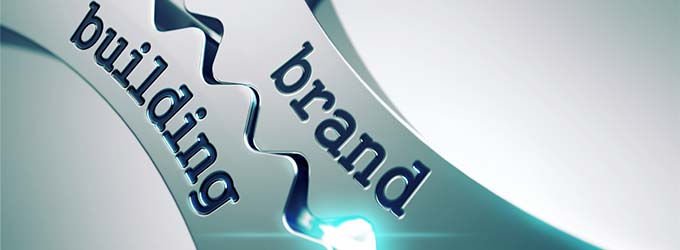125 Google SEO factors and optimization tips 💥
![Google SEO [2026] Google SEO [2026]](images/images-blog/google-seo.jpg)
Google SEO points for website & pages
Advertisement
1. Page title
Your SEO meta title for the page is one of the most important factors for your search engine optimization, make sure your best keywords are used, and preferably as far as possible in front of the sentence. Keep the length of your Google SEO meta title up to 65 characters.
2. Location keywords in page title
The further up front your keywords are used in the title, the stronger this is.
3. Page description
Your keywords must also appear in the description and preferably as far as possible at the front. Keep your description below 155 characters but as close to it as possible.
4. Keywords in H-tags
Use your keywords in headings and titles of paragraphs in your text, this does not necessarily have to be H1, if your largest H tags are H3, Google understands this perfectly and are just as strong as H1 tags on another site. The most beautiful is of course a beautiful structure with 1 H1 tag, and a number of H2 and H3 tags.
5. Keywords in the text
There is a lot of speculation about the best keyword density for a text, but of course your keywords cannot be missing. I recommend using them at least 1x at the top, 1x in the middle and 1x at the bottom of the page. At the top of the text is the most important, in the first paragraph. Make sure that you do not exaggerate because that can result in penalty points, especially if it is at the expense of readability. As long as the readability remains optimal, you don't have to worry if the keywords are very common.

6. Extensive content
Articles below 250 words will rank less well, articles above 2000 words are great, because it looks like they know a lot about the topic and have taken the time to write the article. It is advisable to keep texts above 500, preferably 700 words, if you feel like making more work out of it, Google greatly appreciates this.
7. Page/website loading time
The faster your website finishes loading for your visitor, the better the page ranks. Therefore, optimize your images, use browser cache and G-zip compression. Even better is the use of a CDN network so that your website can be offered to the visitor quickly from different servers all over the world. You can get your loading time data on Google PageSpeed Insights for your site and they give you tips on how you can improve the loading time. To achieve high values is specialized work and certainly for CMS websites, if you want to be really fast you better work with HTML. The fastest Wordpress theme I know is WP-Astra
8. Duplicate content
The so-called duplicate content is harmful to your site. If you steal texts from other websites, this is very difficult. If your text appears on other sites but you were the first to publish the text, this is still not ideal although Google knows who was the first to have it. The best way to address such a website is to request that their text be modified or removed. Use Copyscape to find out if your texts or parts of your texts appear on the internet. The easiest way is to pay a bit and perform a bulk search for your complete website and to be able to paste texts and not only be allowed to do URL searches.
9. Duplicate content within the own website
Always try to use a www-re-direct so that the same content is not available on the internet without www and with www, always use texts on 1 page of course, in the column you can return things. You can go a little further and strip the trailing slashes at the end from the URLs and /index.html and index.php back to the domain name itself, so for example webstick.blog/index.html to webstick.blog.
10. Indicate Canonical
For example, if you have a separate homepage for users from England with practically the same text, you can indicate this to Google with rel=canonical in the meta tags of your page, so you will not be penalized for duplicate content.

11. Frequently renewing content
Updated content is taken care of and relevant, you keep your visitors up to date, this makes your site rank a lot better if you regularly offer new content on a page. A factor here is the frequency and amount of text that is adjusted.
12. Keywords = Search
The exact matching of your keywords and the search query is stronger than a distribution or change the order of your long-tail keyword. For example: your keywords are "having a website created", you will then automatically be found on "have your website created" or "having a website created", but better if it is identical. That is why it is best to research well on which a lot of searching is done before you determine on which keywords you will optimize your page.
13. Link to authority websites
Relevant linking to pages on websites with a high PR, DA and PA is seen by Google as a positive addition to your content. Link on every page to 2 authority sites if possible (switch between 1, 2 and 3 links in order not to show a standard pattern).
14. No spelling errors / Defective grammar
Use a spell checker after you have written an article to ensure that all errors are corrected, this indicates that you want to provide a well-written text, this indicates to Google that the content would also be better. It is also wise to read the written text carefully as if you were reading it for the first time, so you usually discover quite a few errors in sentence structure and other things that spelling checkers do not pick up, such as having to build in here and there on the left or plural of a word instead of singular et cetera.
15. No HTML errors
The same applies here as for spelling, take care of your pages. If your entire site is free of HTML errors, this is of course a sign of excellence because almost no website meets this. In fact, even reputable websites sometimes have more than 100 errors on their homepage only, the website of the BBC or Yahoo are good examples of this. With a CMS website it is often practically impossible to remove all HTML errors, you would have to work with HTML for this, which in itself has many more advantages. Check at W3C your pages for HTML errors and warnings.
16. Design and additional content
The design is very important so that people like to come to your website, there always use a perfect theme like Divi Theme. Also,the longer they stay on it and visit all kinds of pages, the higher you will be in Google's search results. Google calls this Rankbrain, point 110 in this list. Having videos, images, but also charts, tables, summaries, calculation modules, etc. are seen by Google as valuable extra content for the page and increase its findability. It also keeps visitors on the page longer, which ensures that you will be found better.
17. Do not excessively link to other websites
If there are a lot of outgoing links on a page, this will be at the expense of your PageRank because you forgive too much "linkjuice" to the other pages to which you link. Certainly if many of the links are in the column and footer, this even suggests that links are being sold, which is completely harmful if Google gets that impression.
18. PR/Authority flow within the website
By linking pages on your website with high PA to pages of which you want to be found better can have a positive effect, linkjuice flows within your own site in this way. It is extreme to even work with nofollows links within your own website to exclude pages for which you do not need to be found from the transfer of PR such as /portfolio and /contact.

19. 404 error pages
You should regularly check whether the pages you link to still exist, because that is certainly not easy to assume, many websites suddenly stop, and you then link nowhere or to a 404 error page . A good program to help you with this is Linkchecker.
20. Difficulty of texts
If your text is for a wide audience you should not write it in a way that places too many demands on a reader in terms of vocabulary and grammar, but you will be less likely to find it. Of course the text must run smoothly and have no grammar and spelling errors.
21. Ratio of advertisements and text
Too many advertisements, such as Amazon, Adsense, affiliate blocks do damage to the findability of your pages, especially if there is no really good text on such a page. Make sure the relationship is right and people can enjoy reading and the ads are not annoying.
22. Pagerank
Pagerank was replaced in 2014 for Page Authority and domain Authority. However, pages that were already indexed by Google at that time still have a PageRank. Pages with a higher Pagerank are found better, in principle the Pagerank means that many good and internal and external pages are linked to this page. But you better forget Pagerank and focus on Authority.
23. Trustrank
Trustrank is very important at the moment. Trustrank is more or less the same as DA and PA and is built on backlinks from well-known websites, the age of your domain, the presence of the complete company data with Chamber of Commerce and VAT number, telephone numbers on your website.
24. Number of levels from the homepage
The farther away a page from the homepage is structurally, the less Authority and Trustrank it picks up. It is therefore found to be worse, unless specifically linked to that page from other websites.
25. Length of the URL
Too long a URL would have a negative effect on findability. Try to have your keywords in the URL and nothing more.
26. Veto from Google’s editors
Employees at Google who rate pages manually can give them an extra boost or a manual reduction in findability.
27. Categories
Pages classified into categories with similar pages receive plus points for this, as it is convenient for the reader if there is comparable content as extra information.

28. Keywords in the URL of a page
The page title also generally determines the URL for that page at CMS websites. So if you are right with the page titles, you are also automatically correct here. However, it can be set separately, so page title and URL do not have to match.
29. References and sources
A positive thing is when texts indicate who wrote it and when, and where certain information comes from and possibly where information can be found to verify the authenticity of texts.
30. Sitemap
Placing a sitemap.xml in the root of your domain and also neatly offering it to Google via Webmaster Tools is something that Google likes. If you use a www redirect, make sure that the sitemap has the same URL as the website www. Give the homepage a higher importance than the rest of your pages in the sitemap.
31. Ranking for multiple keywords
If a page is very high in SERP for other keywords, Google understands that this is good content and this page is quickly found better for other keywords. Writing long and strong content is here a search engine optimization factor.
32. Old pages
Pages that have been around for years but are regularly upgraded are even more popular with Google than brand new content, which they already appreciate very much. A factor here is keeping old texts well up to date if they are still relevant and possibly also indicating on the pages when they were last upgraded.
33. Parked domains
Parking domains on top of each other is basically just duplicate content and is definitely not recommended, unless you have a reason to do so that outweighs the fact that your website is found.

34. Contact details
Because of Trust it is good to present a complete profile of your company and / or yourself on your contact page, the more extensive the better, make sure that the data on which your domain is registered is the same as this profile.
35. Number of pages
A good number of pages indicate that your website is not an average website but a website that must be taken seriously. A good number of content pages is 25 I think, if you have more than 100 pages you can call it a reasonable website. With more content you will of course be found much better in itself.
36. Good hosting
A good and fast hosting that is located close to your visitors and does not fall out too often and has other problems is important for Google rankings, in addition to that if your site is always "not there" visitors will stay away for that reason.
37. Privacy and General conditions pages
These pages are well appreciated and unmistakable on E-commerce websites and indicate that you are acting according to the rules.

38. SSL certificate
If you have a webshop, Google has clearly stated that they favor shops on https over shops on http. Certificates are no longer that expensive these days, so that should not be a reason to stop you from installing them, although installing them is often a hassle, but you can leave that to your designer. A disadvantage is that Pagerank and Alexa are no longer displayed in browsers.
39. Unique titles and descriptions
Try to keep the page titles and descriptions unique for all your pages to make sure that everything doesn't get confused for Google. Watch out if you copy pages as a concept in Wordpress that you do not forget to change the meta data for it!
40. Search engine optimization for mobile devices
Optimize your website for mobile devices with responsive design and ensure that this is a perfect layout that works 100% correctly for your visitors. You will probably only be found better on mobile because of this, but so many visitors nowadays, that this is starting to play a major role.
Points for domains
41. Your best keywords in the domain name
In the past this was very important, nowadays much less but it still seems to count. I personally now prefer the company name as the domain name. Please note: more than 1 hyphen in the domain name is less appreciated by Google.
42. Age of the domain (Domain age)
A domain that has been around for 12 years or more is worth gold, one can say if there are no weird things about it, of course. A brand new domain will get a boost in the beginning, if Google notices that no new pages and backlinks are added, it will slowly sink into the search results.
43. Pay the domain in advance
A domain that has been paid for 10 years ranks slightly better than a domain that has only been paid for 1 year. This is because people who carry out illegal activities on websites do not buy it for several years, so a trust factor.
44. Sub-domains with keywords
Subdomain: website-design.webstick.blog would rank better for "website design".

45. Change of ownership
Changing the ownership of a domain is not good, especially if this happens more often. As a domain is in the hands of the same owner for a long time, the problem will disappear. Backlinks collected in the past would be weakened by Google as a result.
46. Domain = search term
If the words someone is looking for exactly match the domain name, this is an advantage provided that this website is seen by Google as a quality website, in case this is not the case, it is more or less ignored.
47. Whois Privacy
When in whois you do not want to say that you are the owner of a domain, there is apparently something to hide and this is not appreciated by Google, trust factor.
48. Penalties for other domains
If you have multiple domains in your name and you are seen by someone on another domain as someone who uses illegal techniques or is a spammer, this will have adverse consequences for all domains in your name.
49. Domain suffix (TLD)
TLD .nl ranks better on Google.nl and visitors via US IPs, on the other hand it makes sure that you are less well found worldwide, that would be better for that. You can also use a .com domain in Google Webmaster Tools to set that you want to rank better for the Netherlands with the same effect.
Points for backlinks
50. Total number of linking sites (backlinks)
The more different websites link to yours, the better. This is one of the most important factors for the findability of your website in Google and other search engines.

51. Total number of linking pages (backlinks)
Regardless of whether these pages are on the same site, this is a ranking factor, I am talking about different links in the context, links that are in the footer or sidebar and that are all identical are seen as 1 link.
52. Number of linking C-class IPs
If you get all your links from the same server, this is not good, much better is the widest possible spread over different C-class IPs.
53. Page Authority and Domain Authority of linking pages
The higher your PA and DA from a page that links to you the more linkjuice your page picks up and this is distributed internally by the rest of your website.
54. PA and DA of the homepage of pages that link to you
A link from a page with PA 15 on a top website with a PA 90 homepage outweighs a PA 30 homepage from an unknown non-authority website. The same applies to Domain Authority.
55. Links from sites and pages in the same niche
Niche has become a very big factor in recent years, links from pages that are hardly related to your website's genre are hardly touched, but links from the same niche are indexed by Google and billed in a positive way.
56. In-content links
Links that are incorporated in the content of a page outweigh links in the author section under an article, links in the sidebar or footer. Good search engine optimization requires a complete network of links on all pages in the context itself.
57. .Edu and .Gov links
Websites with these TLD's, so from universities and government institutions are the top domains to get links from, these links are much harder to come by and are highly honored.
58. Title- en Alt-tags on images
If you take the trouble to give all your images at least title tags, but preferably also set the alt tags, this will benefit your Google SEO particularly well. The title tags can also give your visitors extra info about images and are therefore really useful.

59. Bad neighbourhood links
Avoid links to your website from adult, gambling, and illegal sites. In some cases you have not requested this and are unable to remove these links. In that case you can use Google’s Disavow Tool to indicate that you want nothing to do with these links and therefore you will not be billed for it.
60. Outgoing Nofollow links
You can use nofollow links yourself to not give linkjuice to other websites. It is also important for webmasters not to have a dofollow link at the bottom of these websites on too many customer-built websites, certainly not site-wide, and certainly not if all these sites are on the same server. My tip is to make these types of links almost all nofollow or even just put the URL of your site under it without a link.
61. Incoming nofollow links
It is good to have a number of these in relation to dofollow links in order to have a natural looking link profile. They could not give themselves a linkjuice.
62. Natural link profile
This also means that you do not only have inbound links with top keywords with a large spread. So dofollow and nofollow links, links with top keywords and links with less good keywords for example with some extra words in it, and also links with your domain name and company name as anchor text, and even links with anchor texts such as "click here", "here" , "My website", et cetera. Also make sure you have all kinds of links such as links from comments, blogs, normal websites, articles, profiles, social media, press releases, and bookmarks.
63. Sponsor links, link partners
If a section in a column or page has a title like "sponsors" and "link partners", then Google knows that these are not the kind of links that should be rated high. Therefore, avoid such terms near the left.
64. Link title
You can also add a title to a link, this title is displayed when you move the cursor over the link. This title works as a kind of extra anchor text, although less heavy than the anchor text itself, but it is good to use them here and there.

65. Links from domains with foreign languages
Why would a Chinese website link to yours? Google now also understands this and this is harmful to the Chinese site nowadays and your link will hardly count for your website. You may link to English sites with your Dutch website, Google understands that we all speak English. In any case, try to have as many Dutch links as possible and link to Dutch texts. If you can get a lot of links from English-language websites, make an English section on your website for this purpose to which those sites can link. Some work, but it can be rewarding.
66. Positive environment for the link
Google SEO understands whether the text around a link recommends something or rejects it, use positive words such as "beautiful website", "great advice" and so on in the sentences around it to give extra power to such a link.
67. Wikipedia
Links from Wikipedia though these are nofollow links seem to give an extra trust value to your website.
68. DMOZ
Links from old reliable sites in the same language as your website give extra Trust.

69. Yahoo Directory
Links from Yahoo Directory, like one of the oldest index sites, also seem to give extra trust.
70. Older links
The longer the links exist, the stronger they become.
71. Linking too much to each other
The so-called reciprocal links used to do very well in the past, but nowadays it's better to avoid having too many of them, Google doesn't like this game and punishes it. This can be solved by linking several websites and your partner to each other but from different websites, to different websites (triangle).
72. Original content without tricks
Do not try to be smarter than Google SEO, do not spin texts, do not use content generators such as articlebuilder.net, because Google will certainly understand that and such pages will never be ranked well and will also damage the rest of the pages on your website.
73. Not too many links from forum profiles
Since a lot of accounts are created on Forums and .edu sites only for the backlinks, they receive less value than was previously the case. This is to prevent spamming with worthless accounts on these types of sites.
74. Links with extensive text
The larger an article is, so the number of words, the heavier the links on such a page count.
75. Blocked website in search results
This option is already gone, but many sites have been judged on this recently, it turned out that three-quarters of the sites that blocked people were also dealt with harshly by the Panda algortime, so the option to block sites could probably be removed.

76. Google Chrome Browser
Through its browser Google Chrome, Google collects results and statistics such as bookmarks that people save. If your website is stored a lot in browsers, this is of course very good because it cannot be manipulated with SEO.
77. Comments on articles
Comments and discussions about articles suggest that the content is loved by the public and increase findability, partly because it is also extra text on which one can be found again.
78. Query deserves diversity (QDD)
Query deserves diversity means that when someone searches for example "application" or an abbreviation such as "GDP" the search engine initially does not know what someone is looking for. also with them, and therefore not only the strongest results. Google will also take past searches from you into account to estimate what you mean.
79. Query deserves freshness (QDF)
Query deserves freshness means that if Google finds that for a search query the best result from hour to hour and day to day is always very different such as for "the weather today" or "Obama today" "earthquake Peru March 20, 2021 "then such searches are given a QDF label. In this case, newly released content is privileged even if it is from sites that normally do not rank well, even articles that have no links at all. QDF is registered by Google because blogs, news sites and search requests for a certain "fresh" topic suddenly pop up at the same time.
You can use this for SEO by writing an article about it immediately if something new is out, if you're lucky people will link to this article and you will get a lot of new visitors to your website with such articles.
80. Your browser's history
If you are logged in to Google, Google will see which sites you visit, in these cases these sites will in future be privileged in search results that are offered to you.
81. Chain searches
If you first search on "have website created" and then on "Wordpress", Google will pick this up and favor future searches on "wordpress website creation".

82. Geo-location
Based on your IP, search results will favor locations near you over others.
83. Safe search
If you have set up a safe search, search results that are not suitable for young people will be filtered out.
84. Google Plus "friends"
If you have people in your Google+ as a friend, acquaintance, etc., and Google knows they have certain sites, these sites will be privileged in your searches.

85. Copyright complaints
Sites that are designated as Pirate sites are disadvantaged vis-à-vis copyright holders.
86. Corporate privileges
Big brands are put above smaller ones, they used to try to help the little ones a little extra, but you notice less and less of that.
Search engine optimization points for social media
87. Social "likes"
Many likes of the type Google+, Linkedin, and Facebook are used by Google SEO as a sign of quality for pages and websites.

88. Number of links in Tweets
A kind of backlinks via Twitter, small pieces of text with a link to pages.
89. Links via Tweets of authority on Twitter
Tweets from people or companies with a very good ratio, so many followers and they follow relatively few people and they have very many followers. Such Tweets are worth much and much more than the average for a page that would be linked to. Think of Twitter accounts of stars, ministers and the like.
90. Facebook shares and Re-tweets
Just like Re-Tweets, many shares provide a quality image of a page.
91. Links via Shares of authority on Facebook
Shares of people or companies with authority on Facebook. Think of Facebook accounts of stars, ministers and the like.
92. Pinterest pins
Extremely popular on mobile devices, pins are good for your site's findability.
93. Bookmark websites links
Bookmarks that refer to your site through bookmark sites (Bookmarking web sites) such as Mister Wong, Fark, or Delicious.
94. Google plusses
Although Google says that this is not an algorithm, we cannot believe that Facebook likes and Twitter followers are factors, but the Google pluses are not.
95. Social environment
Just like with backlinks, Google watches for followers from the same niche and country, which results in extra "points".
Points for comments on a website
96. Bounce rates / Residence time of visitors
If Google sees that visitors stay on your website for a very short time, this indicates that the content or layout is not attractive and Google is inclined to let you be found less well on this. You can also accidentally ensure a high bounce rate by, for example, not mentioning prices in the descriptions while you are selling expensive products.
People come to your site with a certain expectation and suddenly find products that are above budget and are quickly gone. Use titles and descriptions in such a way that people get an impression of what they can expect on your website. If people stay on pages for a long time after a Google search, this is a sign of quality.

97. Menu navigation
If your menus are chaotic and people don't see the forest for the trees, this is a reason to rate your site less.
98. Google Webmaster Tools
With a GWT account you can check which pages are suddenly no longer found by Google and link them to existing pages. This way visitors are not sent to 404 pages, Google honors this. Do not link all nonsense URLs that you find in GWT with crawl errors, it is better to ban these with a robots.txt and submit a request in GWT to de-index these pages.
99. Customer ratings and reviews
These do particularly well at Google both on your own website, but certainly in Google Plus, Marktplaats, Linkedin etc. If your website is listed on sites that warn people of poor service and the like, it is of course particularly harmful and these are therefore negative reviews and reviews.
Points that Google SEO does not like
100. Over-optimization
Over-optimizing the website seems to result in penalty points, this is not my personal experience and I optimize everything to perfection but it is said everywhere. Apparently the limit is particularly high, which is over-optimization, so I would not be too afraid of this, apart from using too many keywords in articles, too high a keyword density, and certainly if the readability of the article suffers from it is not good.
101. Articles about or linking to “Bad Neighborhood”
Make sure your site has nothing to do with adult themes, medicines for potency, gambling games, etc. unless your website is really about this, then there is no other solution.
102. Forbidden techniques in search engine optimization
Doorway pages, cloaking, duplicate content, link spam, hidden text, hidden links, everything that Google says they would rather not find is very harmful to your site.
103. Commercials and pop-ups
I don't count Adsense or affiliate links here, but some sites are really annoying right from the start. They require you to register, pop-ups before you have even seen the site yourself, mandatory clicks on Facebook likes, etc. If a website is annoying for the visitor and it clicks or clicks away, this is bad for your SEO. Remember: Why would Google send people to such a website?

104. Panda algorithm
Het Panda algorithm means that articles with little, bad or spun content lose findability.
105. PA/DA over-manipulation
If you make all outbound links nofollow and also fiddle with nofollow within your own website, this could cause a Google penalty and is therefore bad for your search engine optimization.
107. Over-optimizing meta
It is not advisable to over-optimize meta title, description and keywords, or too many keywords. Try to optimize well without crossing the border.

108a. Penguin algorithm - Unnatural backlink pattern
Strange backlink patterns are picked up by Google Penguin and automatically punished. Penguin is smarter after every update and in principle automatically learns how someone gets his links. Too much manipulation of this is therefore not recommended, or you have to be a master in making sure everything looks natural.
The problem here is that almost all competitors are involved in backlink building, and if you do nothing, you will stay far behind despite Penguin. Therefore, study carefully what Penguin means if you want to be found well, and also regularly check what would have changed with the algorithm after updates. In any case, make sure that there are never too many links added in 1x, do not use automation for link building.
Tip: Where your links come from should be spread as much as possible, blogs, press releases, comments, social media. Forum profile links and links in comments are monitored by Google because they were often used by experienced link builders in the past, take it easy. The anchor texts and pages that are linked to must also have as much spread as possible. Also don't stop suddenly with link building, because that is of course unnatural!
108b. Google pitfall (Google Dance)
In spite of having noted positive links for your website, Google can temporarily react in reverse and let you temporarily drop in the search engine results. They then monitor how you react to that. If these links suddenly disappear again, this is a sign that they were unnatural. Such behavior by Google has the name “Google Dance”.
109. Google Hummingbird
Google privileges pages of companies at someone nearby. Google is able to do this. geo-location and other resources to know where someone looking for something lives, works and is currently present. The exact keywords are sometimes less important than relevance in the text on the page.

110. Google Rankbrain
Artificial intelligence that through experience with millions of search requests always tries to improve the relevance for the pages offered by Google. This means that the algorithm looks at what happens when someone clicks on a search result in the list that Google offers after someone has searched for something. The longer the visitor stays on the website, the better. It is also good if he visits various pages. A perfect program to manipulate this process is Pandabot. It is a browser that automatically performs searches and shows a positive behavior on the website. One hand washes the other with this program.
111. Voice search
In a voice search many people are more inclined to use more words and to ask questions than in a normal search.
112. Google Mobile First
In 2019, more than 60% of searches in Google came via mobile devices, and that will increase again this year. It is therefore important to make your website responsive to all possible browsers and devices.
Search engine optimization points for brand names

113. Brand name search
Many searches from people on your brand. Google quickly finds out what a brand is by searching for "Webstick Twitter account", "Webstick address data" and the like. Your Google SEO will improve considerably as more is searched for on your brand (company name).
114. Brand name in anchor texts
The anchor text on the left often contains a brand name, this is a strong sign.
115. Twitter brand name
Beloved brands have a lot of followers on Twitter and a high ratio, the ratio between followers and following is 10: 1 or more.
116. Facebook Apps
Brands use Facebook Apps within their account on Facebook.
117. Registered employees
Brands have registered employees on their own site on a page like "Our Team" as well as on their LinkedIn account.

118. Brand name in the news
If popular news websites often mention a certain term, it is probably a brand.
119. The lack of links
Brand names are often mentioned without linking to their site, for example www.webstick.nl but without pasting a link into it. They know how to find the site as well with brands.
120. RSS feed subscribers
Having an RSS feed with many subscribers is a very strong sign, few people subscribe to RSS unless there is really something special to get.
121. Multiple locations
Companies that are located at multiple addresses are clearly not your average company.
122. Trade register registered
Companies that are officially registered with the trade register naturally receive plus points from Google SEO. A trust factor.
Google SEO tools
123. Disavow tool
You can check in Webmaster Tools yourself what backlinks you have, and also what backlinks have recently been added to your site. Then you have the disavow tool available to reject links yourself that you think might be harmful.
124. Crawl errors
Again via Webmaster Tools you can see which 404 errors there are and make redirects in your .htaccess or you can reject these URLs with a URL removal request (also in GWT). If you submit such a request for URLs, at the same time always make sure that you also reject it via your robots.txt file.
125. Reconsideration request
If you think you have been penalized by Google for certain reasons, and you have corrected this, you can submit a reconsideration request. Submit it to review your site again and remove the punishment. Always provide clear text and explanation for such a request, do not always submit new requests and only after having tried to correct in good faith.
Advertisement
